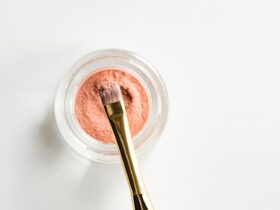For perfume aficionados, preserving the integrity and longevity of their cherished fragrances is paramount. A central question often arises: does transferring perfume from its original bottle to an atomizer improve its preservation? The answer, as with many things related to perfume, is nuanced. This article delves into the pros and cons, examining the scientific principles and practical considerations involved in using atomizers for perfume storage.
Understanding Perfume Degradation
Before exploring the role of atomizers, it’s crucial to understand what causes perfume to degrade in the first place. Perfume is a complex mixture of volatile compounds, primarily essential oils, aroma chemicals, and alcohol. These compounds are susceptible to several environmental factors:
- Air (Oxidation): Oxygen in the air reacts with perfume molecules, altering their chemical structure and leading to changes in scent. This is particularly noticeable with top notes, which tend to fade or sour over time.
- Light (UV Radiation): Exposure to ultraviolet (UV) light, especially sunlight, breaks down the chemical bonds in perfume compounds. This process can cause discoloration and significantly alter the fragrance profile.
- Heat: High temperatures accelerate the chemical reactions that lead to degradation. Storing perfume in a hot environment can quickly diminish its quality.
- Contamination: Introducing foreign substances like dust, skin oils, or other perfumes can contaminate the fragrance and compromise its composition.
The Argument for Atomizers: Reduced Air Exposure
The primary argument in favor of using atomizers for perfume preservation centers around minimizing air exposure. Here’s how it works:
- Sealed Environment: A well-sealed atomizer can provide a more airtight environment than the original perfume bottle, particularly if the original bottle uses a dip tube that remains open to the air even when the cap is on. This reduced air exposure slows down the oxidation process.
- Minimizing Oxygen Introduction: When spraying directly from the original bottle, air can be pushed back into the bottle along with the perfume. An atomizer, especially those with a pump mechanism designed to minimize backflow, can reduce the amount of oxygen introduced each time it is used.
Therefore, in theory, an atomizer can contribute to preserving perfume by slowing down oxidation, especially if the original bottle isn’t completely airtight or is frequently opened and exposed to air.
The Argument Against Atomizers: Potential for Contamination and Degradation
Despite the benefits of reducing air exposure, using an atomizer also presents potential downsides that could compromise perfume preservation:
- Material of the Atomizer: The material of the atomizer itself can impact the perfume. Certain plastics can react with fragrance components, leaching chemicals into the perfume and altering its scent. Glass is generally considered the safest material for storing perfume. Metal components in the atomizer, if not made of inert materials like stainless steel, can also react with the fragrance.
- Cleaning and Contamination: Atomizers require regular cleaning to prevent the build-up of residue and the introduction of contaminants. Even a small amount of residue from a previous fragrance can drastically alter the scent of the new perfume. Insufficient cleaning can lead to bacterial growth, further compromising the perfume.
- Transfer Process: The act of transferring perfume from the original bottle to the atomizer can itself expose the fragrance to air and light. A poorly executed transfer can spill perfume, introduce contaminants, and increase the risk of evaporation.
- Evaporation: While a well-sealed atomizer reduces air exposure, a poorly sealed one can accelerate evaporation, particularly if the nozzle or cap doesn’t fit tightly.
Choosing the Right Atomizer
If you choose to use an atomizer, selecting the right one is crucial for perfume preservation. Consider the following factors:
- Material: Opt for atomizers made of high-quality glass, ideally dark or amber-colored to block UV light.
- Seal: Ensure the atomizer has a tight-fitting cap and a well-sealed pump mechanism to minimize air exposure and evaporation.
- Size: Choose an atomizer that is appropriately sized for the amount of perfume you intend to store. Larger atomizers can expose the perfume to more air as the volume decreases.
- Ease of Cleaning: Select an atomizer that is easy to disassemble and clean thoroughly.
Proper Usage and Maintenance
Even with the right atomizer, proper usage and maintenance are essential for maximizing perfume preservation:
- Transferring Perfume: Use a clean pipette or syringe to carefully transfer the perfume from the original bottle to the atomizer. Avoid pouring directly from the bottle, as this increases the risk of spillage and air exposure. Work in a dimly lit area to minimize UV exposure.
- Cleaning the Atomizer: Regularly clean the atomizer with a solution of distilled water and a mild detergent. Rinse thoroughly and allow it to air dry completely before refilling it with perfume.
- Storage: Store the atomizer in a cool, dark, and dry place, away from direct sunlight and temperature fluctuations. A drawer or cupboard is ideal.
- Avoid Overfilling: Do not overfill the atomizer, as this can cause leaks and accelerate evaporation.
When is Using an Atomizer Recommended?
While transferring perfume to an atomizer requires careful consideration, there are situations where it can be beneficial:
- Travel: Atomizers are convenient for travel, as they are often smaller and lighter than full-sized perfume bottles. Ensure the atomizer is leak-proof and well-sealed to prevent spills.
- Sampling: Atomizers are ideal for decanting small amounts of perfume for sampling or sharing with friends.
- Protecting Delicate Perfumes: If you have a particularly precious or delicate perfume, storing it in a dark glass atomizer in a cool, dark place can help extend its lifespan.
Conclusion
Whether or not using an atomizer preserves perfume better is a complex question with no definitive answer. While atomizers can potentially reduce air exposure and oxidation, they also introduce the risk of contamination and degradation if not used and maintained properly. The key lies in choosing a high-quality atomizer, meticulously cleaning it, and storing it in optimal conditions. For most perfumes, especially those stored in opaque bottles and kept in cool, dark places, the difference in preservation between the original bottle and a well-maintained atomizer may be negligible. However, for particularly delicate or expensive fragrances, or for travel and sampling purposes, a thoughtfully chosen and carefully used atomizer can indeed contribute to preserving the fragrance’s integrity and extending its lifespan.
Frequently Asked Questions (FAQs)
- Is it safe to store perfume in a plastic atomizer?
Generally, no. Certain plastics can react with perfume and leach chemicals into it, altering the scent. Glass is the preferred material.
- How often should I clean my perfume atomizer?
Ideally, you should clean your atomizer every time you refill it with a new fragrance or every few months, even if you’re using the same fragrance.
- Can I use alcohol to clean my perfume atomizer?
While you can use isopropyl alcohol, ensure it is completely evaporated before refilling the atomizer with perfume. Leftover alcohol can dilute the fragrance.
- What’s the best way to fill a perfume atomizer?
Use a clean pipette or syringe to carefully transfer the perfume. Avoid pouring directly to minimize spillage and air exposure.
- Does the color of the atomizer matter?
Yes, dark or amber-colored glass atomizers are better at blocking UV light, which can degrade perfume.
- Can I store perfume in an atomizer long-term?
Yes, but ensure the atomizer is well-sealed and made of glass. Monitor the scent over time for any changes.
- What are the signs that my perfume has gone bad?
Signs include a change in scent, discoloration, a cloudy appearance, or a sour or metallic smell.
- Is it better to keep perfume in its original box?
Yes, the original box provides extra protection from light and temperature fluctuations.
- Can I refill an atomizer with a different fragrance?
Yes, but clean the atomizer thoroughly before refilling to prevent mixing scents.
- Where should I store my perfumes?
Store perfumes in a cool, dark, and dry place, away from direct sunlight, heat, and humidity.
















Leave a Reply